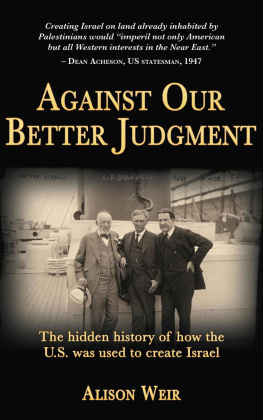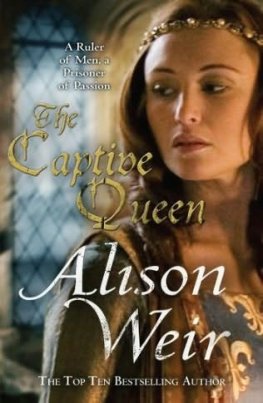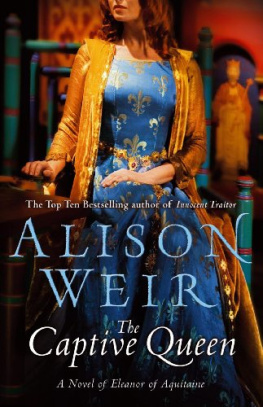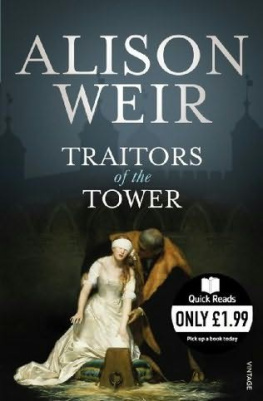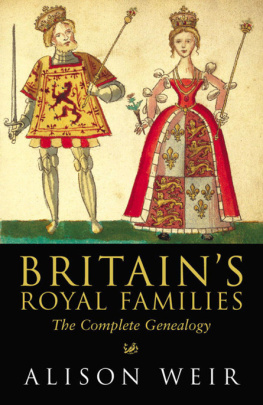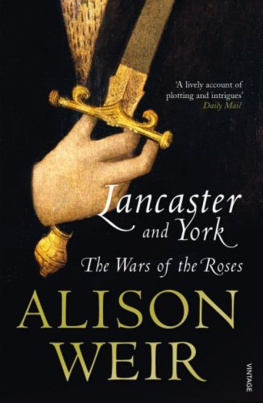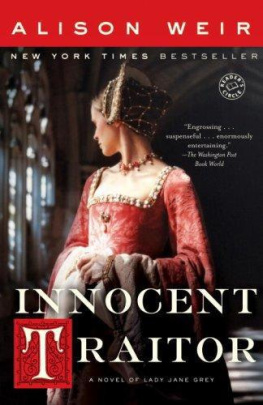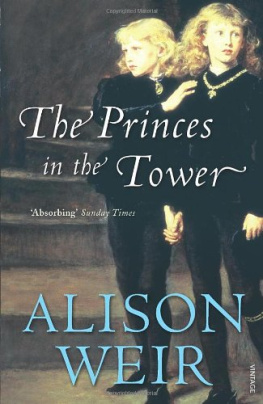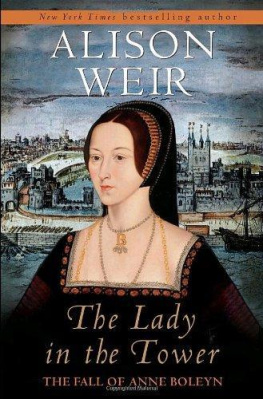Alison Weir - Against Our Better Judgment: The hidden history of how the U.S. was used to create Israel
Here you can read online Alison Weir - Against Our Better Judgment: The hidden history of how the U.S. was used to create Israel full text of the book (entire story) in english for free. Download pdf and epub, get meaning, cover and reviews about this ebook. year: 2014, publisher: CreateSpace Independent Publishing, genre: Politics. Description of the work, (preface) as well as reviews are available. Best literature library LitArk.com created for fans of good reading and offers a wide selection of genres:
Romance novel
Science fiction
Adventure
Detective
Science
History
Home and family
Prose
Art
Politics
Computer
Non-fiction
Religion
Business
Children
Humor
Choose a favorite category and find really read worthwhile books. Enjoy immersion in the world of imagination, feel the emotions of the characters or learn something new for yourself, make an fascinating discovery.
- Book:Against Our Better Judgment: The hidden history of how the U.S. was used to create Israel
- Author:
- Publisher:CreateSpace Independent Publishing
- Genre:
- Year:2014
- Rating:3 / 5
- Favourites:Add to favourites
- Your mark:
- 60
- 1
- 2
- 3
- 4
- 5
Against Our Better Judgment: The hidden history of how the U.S. was used to create Israel: summary, description and annotation
We offer to read an annotation, description, summary or preface (depends on what the author of the book "Against Our Better Judgment: The hidden history of how the U.S. was used to create Israel" wrote himself). If you haven't found the necessary information about the book — write in the comments, we will try to find it.
Against Our Better Judgment: The hidden history of how the U.S. was used to create Israel — read online for free the complete book (whole text) full work
Below is the text of the book, divided by pages. System saving the place of the last page read, allows you to conveniently read the book "Against Our Better Judgment: The hidden history of how the U.S. was used to create Israel" online for free, without having to search again every time where you left off. Put a bookmark, and you can go to the page where you finished reading at any time.
Font size:
Interval:
Bookmark:
The hidden history of how the
U.S. was used to create Israel
Alison Weir
Copyright 2014 Alison Weir
All rights reserved.
DEDICATION
To Laila, Sarah, and Peter
CONTENTS
Acknowledgment s
I am extremely grateful to Katy, who plowed through my piles of obscure books and beyond to check it; to Sarah, whose design so enhanced it; to Monica, whose splendid work kept things together; and to the special, encouraging friends (you know who you are) who have made this all possible.
Above all, I am profoundly grateful to the authors and editors who have produced superb work on this issue for so many years, many receiving little personal gain despite the excellence and dedication of their labors.
I am eternally indebted to the Washington Report on Middle East Affairs , which has covered this issue for thirty years, and its superb book club, an unparalleled resource. I am similarly deeply thankful to The Link and its 40 years of brilliant, in-depth journalism on the Middle East, all on a shoestring budget.
I could not have written this book without the superlative work of previous writers and researchers in revealing the facts on the history of the US-Israeli relationship. I have had the profound honor of meeting some of the top authors on this topic in person and cannot thank them enough for their ground-breaking work: Alfred Lilienthal, Richard Curtiss, Stephen Green, Kathleen Christison, and, especially, Donald Neff, whose detailed research and exquisite writing first opened my eyes to the real history of US-Israel relations.
I find it extremely sad that these extraordinary publications and authors are not more celebrated. If their work had been more widely known and the facts they exposed had reached more of the American electorate, I feel it is quite possible that some of todays deeply erroneous policies might have been avoided and that numerous individuals now dead might be living. My hope to change this situation has motivated my own small contribution. Any mistakes in the following volume are, of course, my own.
Preface
I hadnt originally meant to write a book.
For over a dozen years I had been reading excellent books containing facts about the history of US-Israel relations that very few people seemed to know even individuals highly knowledgeable about the history of the Middle East.
Because so few people are aware of this information, inaccurate narratives have frequently dominated discussions of the US-Israel relationship, contributing to highly flawed U.S. policies. Such policies have fueled tragedy in the region and damage to Americans.
I finally decided to write an article that would set the record straight.
My article, however, grew longer and longer, as I realized how much there was to explain. Plus, I continued to find more information that I felt people needed to know. I would research a point to confirm the information I had, and would often stumble across additional facts of significance, often ones that were extremely surprising to me. The article became a book.
There are two somewhat unusual aspects to this book.
First, I have placed almost as much information in my endnotes section as in the main body of the book.
This is largely because, given how busy most people are, my goal was to write a short, succinct book on the basics. I especially wanted the book to be useful to readers new to this issue, who I felt would be best served by a concise, clear sketch of what has been going on.
At the same time, however, there were additional details that I thought would be interesting to many people, even if this information did not merit being included in the main account. Therefore, I decided to include it in the endnotes.
I felt these additional facts would be particularly valuable to people who have studied this issue for years and yet who probably had not come across much of this information. I also felt this additional information would be interesting to neophytes after they had read an overall account of the basic history.
Another reason for the lengthiness of the endnotes section is that during my research I occasionally came across information that contained speculative hypotheses that I thought merited investigation. This information, too, I placed in the endnotes, suggesting that other researchers might wish to explore it further.
A second unusual aspect of this book is that beginning several years ago I published my early, rough drafts as I went along both on the Internet and in print booklets.
This was because fairly early on in my writing I realized that this project was going to take far longer than I had originally anticipated. Since I felt it was critical that the facts get out to people as soon as possible, I decided to make my information available to others quickly, rather than waiting for a finished manuscript. I also posted some critical documents ahead of time, so that others, also, could read them. Happily, I suspect this practice has caused other books, published since I began making my research public, to address aspects that might otherwise have been omitted.
* * *
I am often asked how and why I became so intensely interested in Israel-Palestine.
This was certainly unexpected; earlier in my life I would not have predicted that I would write a book on this topic. Like most Americans I felt this region had little to do with me. I had never paid much attention to this issue, and my information about it was largely influenced by the movie Exodus and mainstream U.S. news headlines.
In the fall of 2000 that changed.
What is now known as the Second Intifada (Palestinian uprising) was in the news, and I grew curious about it. I decided to follow the news coverage to learn what this conflict was all about, and I fairly quickly noticed how one-sided the coverage was. My background was in journalism (I was at that time the editor of a very small weekly community newspaper), so I was aware that reporters are supposed to give the full picture in a more complete way than I felt was going on.
Because the Internet was available, making information on remote daily events far more accessible than previously, I began to research the news further. In doing so I discovered a far more drastic pattern of Israeli violence against Palestinians than mainstream U.S. news organizations were revealing.
For example, I discovered that large numbers of Palestinian children were being killed by Israeli forces, many of them through gunfire to the head and that they had been killed before the far smaller number of Israeli children who eventually began also to be tragically killed. Similarly, I found that over 140 Palestinians of all ages had been killed before any Israelis in Israel, even though the media consistently were referring to Israeli violence as retaliatory.
After a few months of looking into this issue, becoming more and more disturbed by what I was finding in the region and what began to appear to me to be a cover-up in the American media I finally decided I needed to see for myself what was going on. I quit my job and went to the region as a freelance reporter, traveling independently throughout Gaza and the West Bank during the height of the uprising.
When I returned, I began an organization called If Americans Knew. The purpose was to create a nonpartisan, journalistic organization that would provide the facts on this extremely important issue to the American public, and on our connection to it.
Americans have given far more of our tax money to Israel than to any other nation, and to the region in general. In addition, the U.S. government frequently vetoes international initiatives on Israel that virtually all other nations endorse. As a result, our support for Israel has created growing hostility against the United States, placing our citizens in increasing risk.*
Font size:
Interval:
Bookmark:
Similar books «Against Our Better Judgment: The hidden history of how the U.S. was used to create Israel»
Look at similar books to Against Our Better Judgment: The hidden history of how the U.S. was used to create Israel. We have selected literature similar in name and meaning in the hope of providing readers with more options to find new, interesting, not yet read works.
Discussion, reviews of the book Against Our Better Judgment: The hidden history of how the U.S. was used to create Israel and just readers' own opinions. Leave your comments, write what you think about the work, its meaning or the main characters. Specify what exactly you liked and what you didn't like, and why you think so.

